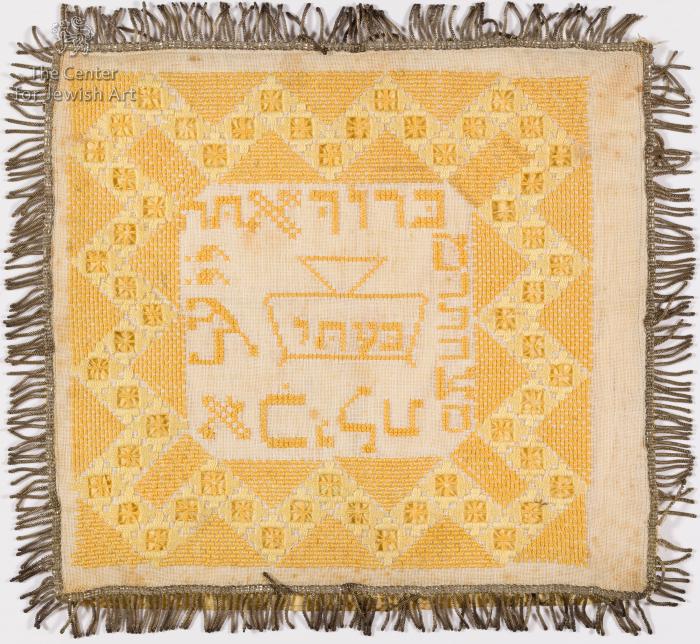Obj. ID: 38239 Matzah cover, Hungary, 1880

sub-set tree:
The following description was prepared by William Gross:
Matzah is the unleavened bread that Jews eat during the eight days of the Passover Holiday. The leader of the ceremony of Passover Eve conducts the ritual using different symbols of the Holiday, including three pieces of Matzah. Special holders were made to keep these three pieces in three separate compartments. Such Matzah holders were often made from textiles and embroidered to beautifully grace the Passover table. They were often made by the woman of the house.
This Matzah cover is embroidered in yellow wool on a piece of the fine linen fabric. In addition to its elegance, this example is notable for its relatively early date of 1880 and the fine condition in which it has been preserved. The piece is edged with gold tassels. In the center is embroidered an abbreviated version of the Hebrew blessing over the Matzah. The textile was made to contain the three pieces of Matzah as is the custom.
Insription: Baruch Atah Adonai Eloheinu Melekh........ Betty


